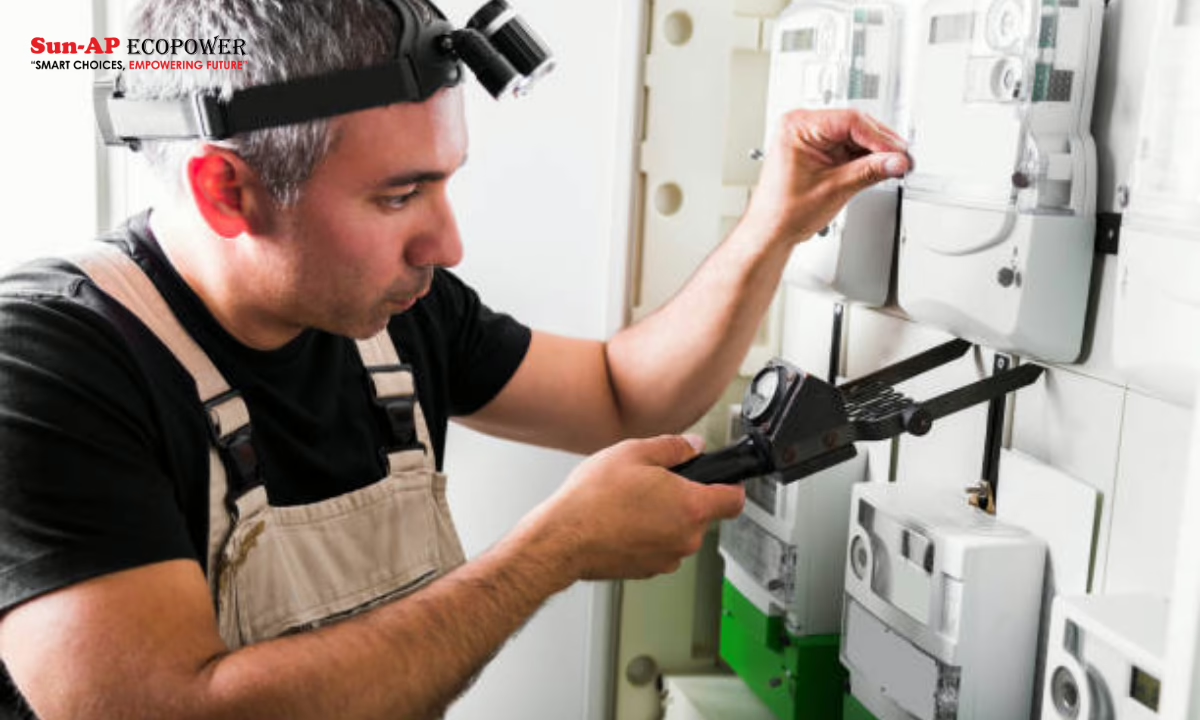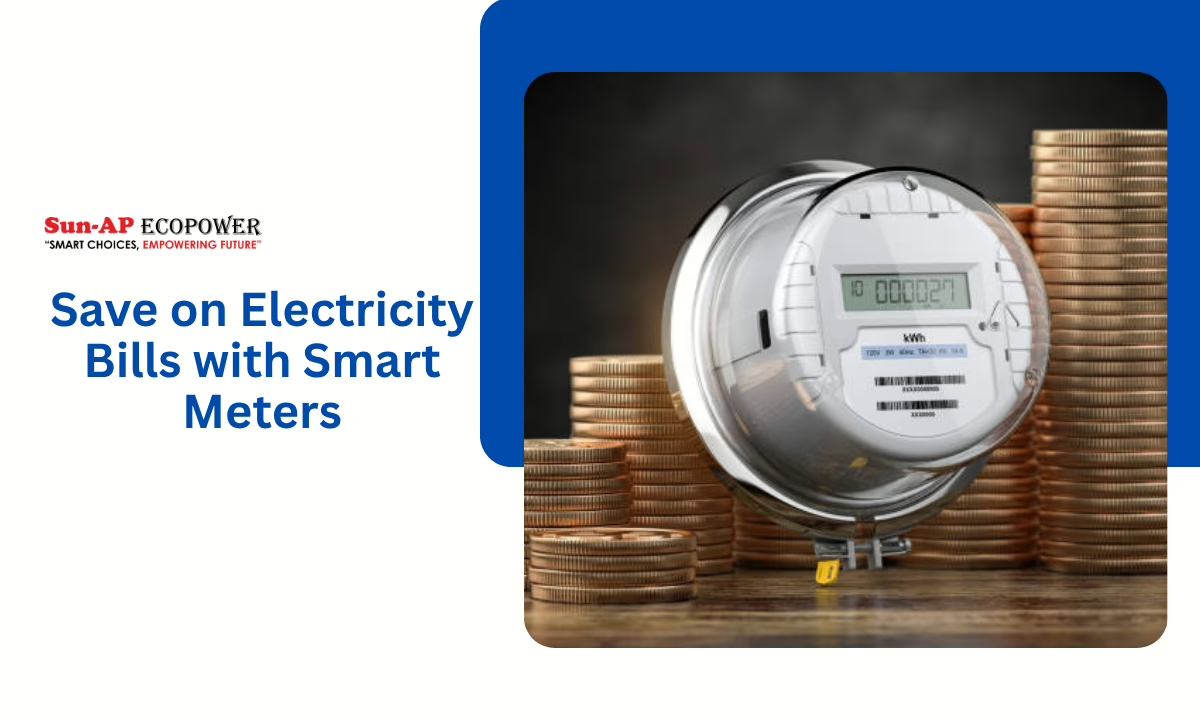Smart meters are transforming the way we monitor and manage our electricity consumption in homes and businesses across the country.
These innovative devices provide real-time insights into your energy usage, helping you make informed decisions that directly impact your monthly bills.
Whether you are a homeowner looking to reduce costs or considering energy alternatives through solar panel dealers in India, understanding how smart meters work can unlock significant savings opportunities that you never knew existed.
What Is a Smart Meter For Electricity?
A smart meter is a digital device that automatically records your electricity consumption and communicates this data directly to your energy provider.
Unlike traditional meters that require manual readings, smart meters transmit information wirelessly, eliminating the need for estimated bills.
These advanced meters display detailed consumption patterns, showing you exactly when and how much electricity you are using throughout the day.
The technology enables two-way communication between your home and the utility company, creating a more transparent and efficient energy ecosystem.
How Smart Meters Installation Changes Everything

Smart meter installation is typically handled by certified technicians from your electricity provider at minimal or no cost to consumers.
The installation process usually takes 30 to 60 minutes and involves replacing your existing meter with the new smart device.
Once installed, the meter immediately begins collecting data and sending it to your provider’s system automatically.
We’ve seen households reduce their consumption by 10-15% simply by having access to real-time usage information that smart meters provide.
The installation doesn’t require any changes to your home’s wiring or electrical setup, making it a hassle-free upgrade.
Smart Meters Vs Regular Meters: Understanding The Key Differences
When comparing smart meters vs regular meters, the differences are substantial and worth considering.
Traditional meters only show cumulative electricity usage and require physical inspection by utility workers for billing purposes.
Smart meters, on the other hand, provide granular data on your consumption patterns hour by hour, day by day.
| Feature | Regular Meter | Smart Meter |
|---|---|---|
| Reading Method | Manual | Automatic |
| Billing Accuracy | Estimated/Actual | Always Actual |
| Real-time Data | No | Yes |
| Remote Monitoring | No | Yes |
| Outage Detection | Manual | Automatic |
Regular meters can lead to billing disputes due to estimation errors or misread values during manual collection.
Smart meters eliminate these issues by providing accurate, automated readings every single time.
Smart Meter Reading Made Simple
Smart meter reading happens automatically without any intervention required from your side.
The device records your consumption in intervals ranging from 15 minutes to an hour, depending on your utility provider’s system.
You can access this data through mobile apps or web portals provided by your electricity company.
Many households check their consumption during peak hours and adjust their usage to off-peak times, resulting in lower bills.
For those working with solar panel dealers in India to install renewable energy systems, smart meters can track both consumption and generation simultaneously.
This dual functionality helps solar panel owners understand exactly how much energy they’re producing versus consuming.
How Smart Meter Billing Saves You Money
Smart meter billing is based on actual consumption rather than estimates, ensuring you pay only for what you use.
The detailed breakdown helps identify energy-wasting appliances or habits that inflate your bills unnecessarily.
We recommend reviewing your smart meter data weekly to spot unusual spikes in consumption that might indicate faulty appliances.
Many utility companies offer time-of-use tariffs where electricity costs less during off-peak hours, and smart meters make it easy to shift usage accordingly.
By running heavy appliances like washing machines, dishwashers, and water heaters during cheaper rate periods, families save substantial amounts annually.
Tip: Set reminders to run major appliances during off-peak hours when electricity rates are lowest in your area.
Security And Reliability With Secure Meters
Secure Meters incorporate advanced encryption protocols to protect your consumption data from unauthorized access or tampering.
The technology prevents electricity theft, which previously caused revenue losses that were passed on to honest consumers through higher rates.
Your privacy is maintained through secure data transmission channels that meet international cybersecurity standards.
Smart meters also detect power outages instantly and alert utility companies, reducing restoration times significantly.
The tamper-proof design ensures accurate billing and prevents fraudulent manipulation that was sometimes possible with older mechanical meters.
Integration With Solar Solutions
For households investing in renewable energy, smart meters become even more valuable.
When you work with solar panel dealers in India to install photovoltaic systems, smart meters track the bidirectional flow of electricity.
This means you can see how much solar energy you’re generating, how much you’re consuming, and how much surplus power you’re feeding back to the grid.
The net metering capability ensures you receive proper credit for the excess energy your solar panels produce during peak sunlight hours.
Final Thoughts
Smart meters represent a significant step forward in energy management and conservation efforts nationwide.
The combination of accurate billing, real-time monitoring, and integration with renewable sources makes them invaluable for modern households.
As electricity costs continue rising, having detailed insights into your consumption patterns empowers you to make cost-effective decisions daily.
If you are considering solar power installation through solar panel dealers in India, pairing it with smart meter technology maximizes your investment returns.
At Sun-AP Ecopower, we believe that informed consumers make better energy choices, and smart meters provide exactly that information advantage.
The transition to smart metering isn’t just about technology; it’s about taking control of your energy future and your household budget.
Frequently Asked Questions
1. What Is The Smart Meter?
A smart meter is a digital electricity meter that automatically records and transmits your energy consumption data to your utility provider in real time. It replaces traditional meters and eliminates the need for manual readings while providing detailed usage insights.
2. How Do Smart Meters Work?
Smart meters work by measuring your electricity consumption digitally and transmitting this data wirelessly to your energy provider using secure communication networks. They record usage at regular intervals and enable two-way communication between your home and the utility company.
3. Are There Any Disadvantages To Smart Meters?
Some consumers initially worry about privacy and electromagnetic radiation exposure, though studies show smart meters emit significantly less radiation than mobile phones. Installation issues are rare, and benefits typically outweigh minor concerns about data security or initial adjustment periods.
4. Will Smart Meters Be Compulsory?
Smart meter installation policies vary by state and electricity provider in India. While the government is promoting widespread adoption, current regulations don’t universally mandate installation. However, most utility companies are gradually phasing out traditional meters in favor of smart technology.
5. What Is The Difference Between A Smart Meter And A Regular Meter?
The main difference is that smart meters provide automated, real-time data transmission and detailed consumption insights, while regular meters only show cumulative usage and require manual reading. Smart meters enable accurate billing, remote monitoring, and better energy management capabilities.




